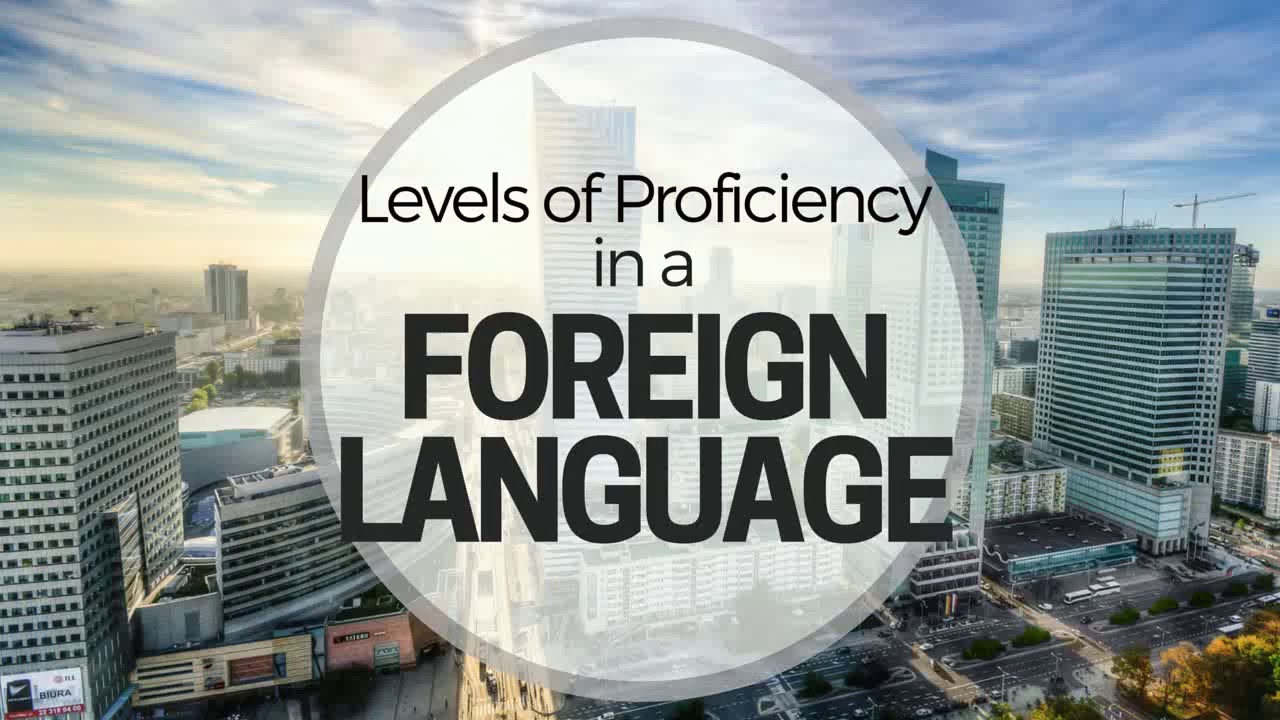Visit https://www.LingQ.com
My Blog: http://blog.thelinguist.com/
My Facebook Page: https://www.facebook.com/lingosteve
My Twitter: https://twitter.com/lingosteve
Follow “Steve’s Cafe” Channel: http://www.youtube.com/c/SteveKaufmann
The discussion between Luca and Anthony: https://www.youtube.com/watch?v=6wnbX3Z42EM
Transcript: Hi there, Steve Kaufmann here. I’m going to talk today about proficiency in foreign languages — levels of proficiency or levels of fluency. I’m doing this in response to a video I just watched which features Luca, who in my mind is an absolutely outstanding polyglot, and Anthony Lauder from Prague.
By the way, if you enjoy these videos where I talk about language learning, please subscribe to my channel.
Now, the video, and I’ll post a link to it in the description box, is a discussion, as I say, between Luca and Anthony where they sort of make the point that you don’t need to have a large vocabulary in order to be fluent. Anthony has in the past sort of said that even with a few hundred words you can be fluent or you can be fluent at a relatively low level of proficiency in a language. I don’t agree at all.
First of all, let’s look at this word ‘fluency’. Fluency is a bit like the word ‘good’ or ‘well’. If you say ‘I’m fluent in a language’, that actually means you are very fluent. If you say ‘I speak a language well’, it means that you speak it well. If you say ‘I speak the language quite well’ or ‘I’m quite fluent’, that actually suggests something less than fluency. You might even suggest ‘I’m fairly fluent in the language’. To my mind, that’s less than fluent. In the video, they both talk about how Anthony can go around town in Prague and doesn’t need many words to exchange pleasantries with shopkeepers or whatever, but is this really fluency? I don’t think so.
There are different ways of measuring levels of proficiency in a language. There’s the European Common Framework of Reference which divides proficiency into six levels from A1 A2, B1 B2, C1 C2… In my view, B2 is where you are fluent, so that’s actually fairly far along. In order to be fluent, you have to be able to do certain things. I think you have to be able to read a newspaper. Now, in Chinese that might cause some difficulty because the writing system isn’t phonetic. So, conceivably, you could be fluent and not be able to read a newspaper, but in most situations someone who is fluent in a language should be able to read the newspaper.
In know in English the difficulty level is roughly Grade 7, Grade 8 and that the biggest factor in the difficulty level of any content is the vocabulary level. Granted, you could have complex sentences and complex structures, but I think the main difference, particularly if we’re talking about levels of fluency, is how many relatively less frequent words are used. In order to be able call one’s self fluent, one needn’t be able to read esoteric literature or scientific papers, but one should be able to read the newspaper and to read the newspaper you do need, at least, the vocabulary of someone in Grade 7. That’s a fair number of words; it’s got to be 7,000 to 10,000 words in English.
Of course if we’re talking about levels of proficiency or levels of fluency in a language, then I also think the biggest indicator is the number of words you know. So if you are very fluent, I mean if you are at a university level, you are going to know a lot more words than someone who can only read at a Grade 3 level. Now, you could argue that someone could be fluent with a limited vocabulary. It’s possible that someone could be fluent with a Grade 3 level of vocabulary, but if you are an adult and you can only community with children, to my mind you’re less than fluent. If you can only talk about the weather and very basic things, even if you do so fluently, to my mind you’re not fluent.
Most adult native speakers have a large vocabulary, a large active vocabulary. Certainly, the people that I would like to communicate with have large active vocabularies; therefore, I have to have a fairly large passive vocabulary in order to understand what they’re saying. I think that fluency implies two-way communication. You can learn a bunch of sentences, you can use Anki or whatever to express yourself fairly quickly, but the trick is to understand what other people are saying. That is why I put so much emphasis on listening and reading. You can see in the background here just some of the language CDs that I own. I also have books and daily I download content from the internet and I listen.
Read the full transcript here: https://www.lingq.com/learn/en/workdesk/item/12255155/reader/
language
1461262022
2016-04-21 18:07:02
7:58
UCez-2shYlHQY3LfILBuDYqQ
Steve Kaufmann – lingosteve
550
11
source


